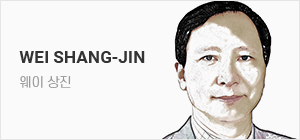이 기사는 해외 석학 기고글 플랫폼 '헤럴드 인사이트 컬렉션'에 게재된 기사입니다.


Is globalization in retreat? That is a question plaguing international fora and increasingly posed to those analyzing and studying international relations. I have heard all types of arguments, both in favor and against: “yes”, we are witnessing a decoupling of the world economy and a growing fragmentation in blocks that not only compete economically, but also politically; “no”, interdependence has never been bigger than today, and we have bounced back from the COVID pandemic with levels of trade that do not correspond with the confrontational discourse; “maybe,” we are not witnessing more or less globalization, but actually a change in its nature, with resilience concerns more present and new concepts such as open strategy autonomy or friendshoring taking the central stage.
There is probably some truth in all three positions, no matter how opposed they may be. And it may be too early to adequately assess whether globalization is slowing or doubling down, as well as to understand whether its nature may be transforming. But for me, the key question that we should be asking ourselves is not that one, but rather why globalization has earned itself such a bad reputation and elicits so much rejection among vast segments of the population. This is something striking to anyone who believes in openness and global cooperation, and understands the basic principles underpinning international trade (specialization, comparative advantage, complementarity).
However, negative attitudes are easier to understand as soon as we acknowledge that the benefits of globalization have not been adequately shared, creating many losers along the way, as well as great levels of anxiety and insecurity. If we get out of our globalist bubbles, we may encounter people in developed countries who have lost their jobs to offshoring, and others in poorer regions who are exploited by foreign multinationals. We may come across communities who see their traditional socioeconomic backbones broken because of openness, or witness how their languages and cultures are threatened when confronted with larger competitors.
The writer of this article is certainly a winner and embracer of globalization, as probably is the person reading these lines. You and I, my fellow reader, can travel the world without much concern about being stopped at a border and being deported back to our countries. We have foreign friends, and experience firsthand the benefits of living in a more interconnected world. But we may not be representative of the average citizen. This is what I call “The Globalist Fracture”, marked by a growing divide between global elites and anti-global masses. And unless we bridge that gap and ensure that everyone enjoy the benefits of growing interdependence, we will end up destroying the process of gradual global integration that has characterized our recent history.
Let me stress that anti-globalization is not new. The roots of the current anti-globalization movement can be traced back at least 25 years, to the landmark Battle of Seattle and the demonstration against the WTO, as well as to the famous burning down of McDonald‘s in France led by Jose Bové in the 1990s. Even those were heirs of a much longer tradition connecting to critical thinking, dependence theories and larger anti-colonialist and anti-capitalist lines of thought. Taken even further back in time, the echoes of nationalism, nativism and primitivism resonate in many of the positions opposing globalization.

When I worked at the OECD, we were already very concerned with the so-called “backlash against globalization”, a topic to which we even devoted an OECD Ministerial. In the mid 2010s, we were alarmed by how the optimism around enhance global cooperation that had made possible major international achievements such as the adoption of the 2030 Agenda and the Sustainable Development Goals, the Paris Climate Agreement and the progress in combating global tax evasion brokered by the very own OECD, had given way to important setbacks like Brexit, the election of Donald Trump or the Syrian and Crimean crises. It emerged a sense of urgency to cater for the losers of globalization and not to leave anyone behind. The agenda of multilateral institutions brought to the forefront the need to ensure that globalization was inclusive, sustainable and fair.
Almost a decade later, good intentions did not materialized, and expectations are far from met. Moreover, I would dare to say that we are witnessing now a renewed backlash, albeit of a different nature. The fracture is broadening and deepening, and showing some worrying new characteristics. In my view, this is the result of the many stress tests that our global community has confronted over the past few years and continues to endure: the pandemic, which brought the world economy to a standstill; Ukraine with its awakening of inter-state conflict, border revisionism and even the threat of nuclear war; the tragedy unfolding in Gaza and the risk of regional escalation; the acceleration of US-China rivalry; the rapid erosion of democracy and growing questioning of elections... These shocks are coupled with the evident inability of our multilateral institutions to adequately meet global challenges like climate change or the governance of new technologies, including artificial intelligence or biogenetics.
The accumulation of all these elements shape a very complex landscape which is creating a sense of fear and fragility among the population. This, in turn, reinforces the divide between globalist elites and wider populations. The former embrace change and see in the doubling down of global cooperation the potential solutions to many of those threats. The latter, on the other hand, blame interdependence of many of these malaises, longing for the security and certainty provided by nation-states.
In addition, accusation of hypocrisy and double standards are held against the global elite and richer countries. While we have the perception that the world is about to collapse, companies keeping making record profits, billionaires get richer and the privileged continue living as if they were travelling in the Titanic after it had already hit the iceberg. Populations are asked to make sacrifices that they do not see their leaders making. Many of the countries that until recently advocated open markets protect now their industries under the argument of strategic autonomy and resilience. They consider acceptable now to dig out coal when their energy supplies are threatened by geopolitics, foregoing their green promises. They voice anxiety about overpopulation and the sustainability of their welfare states, while erecting at the same time barriers to migration and promoting birthrates among their nationals.
The globalist fracture gains ground both domestically and internationally, fed by dichotomy between those who win and those who lose: cities vs. countryside; white-collar workers vs. blue-collar ones; cosmopolitans vs. nationalists. Our world is increasingly fragmented, and such divide is more and more visible, magnified through enhanced access to information ―as well as to disinformation.

What can we do to amend this situation and heal the fracture? Let me point out three key values that globalists should uphold if they do not want to see the world falling down this spiral of closeness and backsliding.
The first one appeals to fairness and solidarity. It is time to turn the much-proclaimed concerns about inclusion into a reality. As long as further globalization creates losers, it will have detractors. More so if the ranks of losers encompass vast portions of humankind. It is time to give distribution of benefits the same attention that we have given in the past to the question of growing the pie. Indeed, it deserves more attention to make up for the growing inequalities accumulated over decades. And one inconvenient truth needs to be told: this implies that the elites give up on some of the living standards that they currently enjoy, focusing less on wealth and more on happiness and satisfaction. Otherwise, the system will end up collapsing, and everyone will end up losing.
Second, we need consistency and moral standing. Examples like the ones related to new barriers to international trade or exceptions to climate commitments are a blowback to globalist credibility. You cannot change the rules half through the game just because you were winning and suddenly the rest of the world has tied or may even have the prospect of coming on top. The same applies to double standards on geopolitical conflicts or using a different bar to measure human rights respect or the violation of freedoms and liberties when we are referring to allies and not to competitors.
Finally, we need ownership and accountability. The main problem of globalism is that is perceived by most of the population as detached and alien. Most people see multilateralism as a bureaucratic construct, captured by the interest of the powerful. Think about it: a great deal of our identitarian adscription to our countries relies on the fact that, one way or another, our leaders and institutions are accountable to us. This is obvious in democracies when we can elect our representatives. But even in autocracies there is a proximity between power and citizens that you will never find in international organizations or the intergovernmental space. A minimum degree of familiarity is absent because they lack the mechanisms of direct representation and scrutiny, even of basic awareness.
At the end of the day, it comes to empathy and long-termism. Globalism should encapsulate the promise of a better world and a better live for everyone, not just a few. It should embody the believe that humankind is one, and the realization that our success as a species relies on our unique and innate ability to cooperate. In the long-term, we can only win if everyone wins, even it is at the cost of giving up privileges in the short-term. This may entail sacrifices, especially for the elites. But our survival depends on it.
 |
| 세계화에 반대하는 시위대가 1999년 11월 30일 미국 워싱턴주 시애틀에서 열린 세계무역기구(WTO) 각료회의를 계기로 ‘기업 폭정에 저항하라’는 글귀가 담긴 팻말을 들고 항의하고 있다. 격렬한 시위대를 진압하려는 경찰의 대응 수위도 높아 ‘시애틀 전투’라고도 불리는 이 시위는 반세계화 시위의 상징으로도 통한다. |

세계화는 후퇴 중일까. 이것은 여러 국제 포럼에서 고민하는 문제이자 국제관계를 분석·연구하는 사람들이 점점 더 자주 마주치게 되는 질문이다. 필자는 이 질문에 긍정하는 쪽이나 부정하는 쪽의 온갖 주장을 들어봤다. “예”라고 답하는 이들은 세계 경제가 디커플링(decoupling·탈동조화)하고 있으며 경제적으로는 물론이고 정치적으로도 경쟁하는 블록들 안에서도 파편화가 심화하고 있다고 말한다. 한편 “아니오”라고 답하는 이들은 지금 세계가 그 어느 때보다 상호의존적이며, 코로나19 팬데믹에서 회복돼 반대파들의 논리에 맞지 않을 정도의 무역 수준을 기록하고 있다고 답한다. “아마도”라고 답한 사람들은 세계화가 심해지거나 약해지는 것이 아니라 세계화의 성격이 변하고 있는 것이고, 회복탄력성 문제가 더 두드러지거나 개방형 전략적 자율성 또는 프렌드쇼어링(friendshoring) 같은 새로운 개념이 주목받고 있는 것이라고 주장한다.
세 입장의 상반성과 관계없이, 이들 모두 어느 정도 진실을 내포하고 있는 듯하다. 그리고 아직은 세계화가 둔화하고 있는지 가속화하고 있는지, 혹은 그 성격이 변화하고 있는지를 제대로 평가하거나 이해하기에는 너무 이른 지도 모르겠다. 그러나 필자가 생각하기에 우리가 자문해 봐야 할 핵심 질문은 그것이 아니라, 세계화가 왜 이런 오명을 얻게 됐고, 광범위한 사람들에게 이토록 거부감을 주고 있는가다. 개방성과 세계적 협력을 신봉하고 국제무역의 기본 원칙(전문화·비교우위·상보성)을 이해하는 사람에게는 이것이 다소 충격적일 것이다.
그러나 세계화의 이익이 제대로 공유되지 않으면서, 그 과정에서 패자를 양산하고 심한 불안과 걱정을 낳았다는 사실을 인정하면, 세계화에 대한 부정적인 태도를 더 쉽게 이해할 수 있다. 세계화의 환상에서 빠져나오면, 오프쇼어링(offshoring)으로 일자리를 빼앗긴 선진국 사람과 다국적 기업에 착취당하는 후진국 사람이 눈에 띌 것이다. 개방성 때문에 전통적인 사회경제적 중추가 무너진 사회, 또는 더 큰 경쟁자들에 밀려 언어와 문화를 위협받는 사회를 발견할 수 있다.
필자 역시, 그리고 아마 이 글을 읽고 있는 독자도 세계화를 포용한 승자임에 분명하다. 친애하는 독자 여러분, 여러분과 필자는 국경에서 제지받고 본국으로 추방될 걱정 없이 전 세계를 여행할 수 있다. 우리는 외국인 친구가 있고, 보다 상호 연결된 세상에서 살아가는 장점을 몸소 누리고 있다. 그러나 우리가 세계 시민의 평균적인 모습을 나타내지는 않을 것이다. 이것이 바로 필자가 말하는 ‘세계화에 의한 균열(Globalist Fracture)’이다. 이것은 세계화주의 엘리트와 세계화에 반대하는(anti-global) 다수 간에 벌어지는 격차를 말한다. 그리고 이 균열을 메워 증가하는 상호의존성의 과실을 모두가 향유할 수 있도록 하지 않으면, 결국 최근 인류 역사의 특징인 점진적 세계 통합의 과정은 붕괴하고 말 것이다.
반(反)세계화는 전혀 새로운 것이 아님을 강조하고 싶다. 현재 일고 있는 반세계화 운동의 시초는 적어도 25년 전에 있었던 역사적 사건, 시애틀 전투와 WTO(세계무역기구) 반대 시위, 그리고 1990년대 프랑스에서 조제 보베(Jose Bové)가 주도한 유명한 맥도널드 매장 파괴 사건으로 거슬러 올라갈 수 있다. 하지만 이러한 사건들조차도 비판적 사고, 의존 이론, 그리고 더 크게는 반식민주의와 반자본주의 사고에 연결된 더 오랜 전통을 계승한 것이다. 더 오래 전으로 거슬러 올라가면 국수주의, 원주민 보호주의, 원시주의(primitivism)가 세계화에 반대하는 입장에 많은 영향을 줬다.

필자가 경제협력개발기구(OECD)에 근무할 당시, 우리는 이미 이른바 ‘세계화에 대한 반발’에 깊이 우려하고 있었고, 심지어 이 주제에 대해 OECD 각료까지 배정했을 정도였다. 전 세계 협력의 강화에 대한 낙관론이 2030 의제와 지속가능발전목표의 채택, 파리협정, OECD가 나서 조정했던 전 세계 탈세 퇴치의 진전 등 굵직한 국제적 성과를 달성하는 동력이었다. 이러한 낙관론이 2010년 중반 브렉시트, 도널드 트럼프의 당선, 또는 시리아와 크름반도 위기 같은 중요한 후퇴에 자리를 내주면서 우리는 불안감을 느꼈다. 세계화의 패자들이 가진 필요에 부응하고 누구도 소외되지 않게 해야 한다는 절박함이 퍼져 나갔다. 다자간 기구들은 포용적이고, 지속 가능하며 공정한 세계화를 달성해야 할 필요성을 의제로 내세웠다.
약 10년이 흐른 지금, 좋은 의도는 현실화하지 않았고, 기대도 전혀 충족되지 않고 있다. 그리고 필자가 감히 말하건데, 지금 우리는 비록 성격은 다르지만 새로운 반발을 경험하고 있다. 균열은 더 넓고 더 깊게 벌어지고 있으며, 걱정스러운 새로운 특성들이 눈에 띈다. 필자는 이것이 세계 경제를 멈춰 세운 팬데믹, 국가 간 충돌에 대한 우크라이나의 자각, 수정주의의 확장과 심지어 핵전쟁의 위협, 가자 지구의 참상과 역내 확전의 위험, 미·중 경쟁의 심화, 민주주의의 빠른 퇴보와 선거에 대해 커지는 의심 등 국제사회가 최근 몇 년 간 겪었던, 그리고 여전히 겪고 있는 무수한 스트레스 테스트에 따른 결과라고 생각한다. 이런 충격들은 기후변화, 인공지능이나 생물 유전학(biogenetics) 같은 신기술에 대한 관리 등 글로벌 도전과제에 적절히 대응하지 못한 다자간 기구들의 명백한 무능과 얽혀있다.
이 모든 요소들이 축적되면서 사람들에게 공포와 무력감을 일으키는 고도로 복잡한 환경이 조성됐다. 이는 다시 세계화주의 엘리트와 더 많은 대중 간의 격차를 넓힌다. 전자는 변화를 수용하며, 세계적 협력의 강화에서 그런 상당수 위협에 대한 잠재적인 해결책을 찾는다. 반면 후자는 이러한 여러 문제들의 상호의존성을 비난하고, 국가가 제공하는 안정과 확실성을 갈망한다.
또한, 세계화주의 엘리트와 부국들에는 위선과 이중 잣대라는 비난이 쏟아진다. 세계가 곧 붕괴될 것이라고 느끼는 와중에도 기업들은 계속 기록적인 수익을 거둬들이고, 억만장자들은 더 부유해지며, 특권층은 마치 빙산에 부딪힌 타이타닉 호를 타고 여행하는 것처럼 삶을 지속해 나가고 있다. 사람들은 희생을 강요 받고 있지만, 정작 그들의 지도자들은 그런 희생을 하고 있지 않은 듯하다. 최근까지도 개방 시장을 옹호했던 많은 국가들이 이제는 전략적 자율성과 회복탄력성을 내세우며 자국 산업을 보호하고 있다. 그들은 이제 지정학적으로 자국 에너지 수급이 위협받으면 친환경 약속을 폐기하고 석탄을 캐는 것도 수용할 수 있다고 생각한다. 그들은 인구과잉과 복지 국가의 지속 가능성에 대한 불안을 표출하면서도, 동시에 이민자에 대해 장벽을 세우고 자국민들의 출생률을 촉진하고 있다.
세계화에 의한 균열은 도시 대 지방, 화이트칼라 노동자 대 블루칼라 노동자, 코스모폴리탄(cosmopolitan) 대 국수주의자 등 승자와 패자를 가르는 이분법에 의해 국가 안팎으로 확고해지고 있다. 우리가 사는 세상은 점점 더 파편화하고, 그러한 분열은 갈수록 더 뚜렷해지며, 정보(그리고 허위정보)에 대한 접근성이 높아짐에 따라 확대되고 있다.
 |
| 세계화에 반대하는 시위대가 1999년 11월 30일 미국 워싱턴주 시애틀에서 열린 세계무역기구(WTO) 각료회의를 계기로 ‘기업 폭정에 저항하라’는 글귀가 담긴 팻말을 들고 항의하고 있다. 격렬한 시위대를 진압하려는 경찰의 대응 수위도 높아 ‘시애틀 전투’라고도 불리는 이 시위는 반세계화 시위의 상징으로도 통한다. |
어떻게 하면 이 상황을 바로잡고 균열을 메울 수 있을까. 세계가 이런 폐쇄성과 퇴행의 길로 빠지지 않도록 세계화주의자들이 지켜야 할 세 가지 중요한 가치를 제시하고자 한다.
첫 번째 가치는 공정성과 연대에 호소한다. 이제는 지금까지 상당히 제기됐던 포용을 둘러싼 관심을 현실화시킬 차례다. 세계화가 진행될수록 패자가 생기는 한, 세계화를 비난하는 사람들도 존재하게 마련이다. 그런 패자가 인류 대다수를 차지한다면 더욱 그럴 수밖에 없다. 과거 우리가 파이를 키우는 문제에 관심을 가졌던 만큼 지금은 파이의 분배에 중점을 둬야 한다. 지난 수십 년간 확대·축적돼 온 불균등을 해소하기 위해서는 분배에 더 많은 관심을 기울여야 한다. 그리고 한가지 불편한 진실을 말해야겠다. 이를 위해서는 엘리트층이 현재 누리고 있는 생활 수준을 일부 내려놓고, 부(富)보다는 행복과 만족에 더 집중해야 한다는 것이다. 그렇지 않으면 시스템은 결국 붕괴하고 모두가 패자가 될 것이기 때문이다.
둘째, 우리에게는 일관성과 도덕적 기준이 필요하다. 예를 들어 국제무역에 새로운 장벽을 세우거나 기후 약속에 예외를 두는 행위는 세계화주의의 신뢰도에 타격을 입힌다. 당신이 이기고 있었는데, 갑자기 나머지 세상이 당신을 따라잡았다거나, 심지어 제칠 가능성이 있다는 이유로 게임 도중에 규칙을 바꿀 수는 없다. 이는 지정학적 분쟁에 적용되는 이중 잣대, 혹은 인권 존중이나 자유의 침해를 측정할 때 동맹에 대해서는 경쟁자와 다른 기준을 적용하는 경우에도 해당한다.
끝으로 우리는 주인의식과 책임감을 가져야 한다. 세계화의 주된 문제는 대다수 사람들의 눈에 세계화가 동떨어지고 생경하다는 것이다. 대부분의 사람들은 다자주의가 권력자들의 이해에 영합한 관료주의적인 생각이라고 느낀다. 한번 생각해 보라. 우리가 정체성을 이야기할 때 국가에 많은 의미를 부여하는 것은 어떤 식으로든 지도자들과 기관들이 우리에 대한 책임을 진다는 사실에서 비롯된다. 이는 민주주의 국가에서 대표자를 선출할 수 있는 경우 명확히 나타난다. 심지어 독재국가에서도 국제기구 혹은 정부간 기구에서는 절대 찾아볼 수 없는 권력층과 시민 간의 근접성이 존재한다. 후자에는 직접적 대표성과 감시 메커니즘, 혹은 그에 대한 기본적 인식조차 없기 때문에 최소한의 친밀성도 존재하지 않는다.
결국 중요한 것은 공감과 장기주의(long-termism)다. 세계화주의는 소수가 아닌 모두에게 더 나은 세상, 그리고 더 나은 삶이라는 약속을 내포해야 한다. 인류는 하나라는 믿음과 하나의 종으로서 인류의 성공은 인간 본성에 내재한 고유의 능력인 협력에 기반한다는 깨달음을 반영해야 한다. 단기적으로는 특권을 내려놓는 희생을 치르더라도, 모두가 승자가 돼야만 비로소 우리도 승자가 될 수 있다. 이를 위해서는 특히 엘리트 층의 희생이 필요할 것이다. 그러나 우리의 생존은 그 희생에 좌우된다.
hongi@heraldcorp.com














